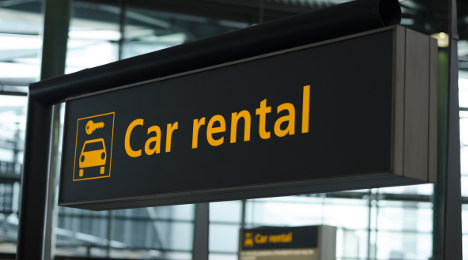Recalls’ Trickle-Down Effect on Rentals and Remarketing

By subscribing, you agree to receive communications from Auto Remarketing and our partners in accordance with our Privacy Policy. We may share your information with select partners and sponsors who may contact you about their products and services. You may unsubscribe at any time.
CARY, N.C. –
Ricky Beggs and Jared Kalfus travel throughout the U.S. as part of their job duties at Black Book, meeting with executives from auctions, automakers and finance companies. During recent business trips, both Beggs and Kalfus noticed unusual circumstances when it came time to secure a rental car.
The Black Book executives said the long lines at the airport rental counter weren’t necessarily triggered by a flood of visitors to those particular cities; rather, the challenges those companies are experiencing because of the millions of vehicles OEMs have recalled so far this year.
“The line was out the door, not necessarily because they were busy. It was because they had no cars,” said Kalfus, who is vice president of data licensing at Black Book Lender Solutions. “Even though we had a reservation and we’re club members where we don’t wait in line, we were waiting in line along with what seemed like half of the city because their vehicles were being serviced because of recalls.
“While they’re still taking reservations, they didn’t have any cars to speak of so they were scrambling,” he continued. “That’s really going to take an effect on the back end when it comes to remarketing time.
“You could see the trickle-down effect where it’s effecting other parts of the space,” Kalfus added.
Meanwhile at another airport in a different part of the country, Beggs didn’t have a problem securing his vehicle when he arrived at his destination. But his experience still produced some unusual conditions.
Subscribe to Auto Remarketing to stay informed and stay ahead.
By subscribing, you agree to receive communications from Auto Remarketing and our partners in accordance with our Privacy Policy. We may share your information with select partners and sponsors who may contact you about their products and services. You may unsubscribe at any time.
“The car size I normally rent, that’s what’s been hit with a lot of these recalls, so I automatically got an upgrade,” said Beggs, Black Book's senior vice president and editorial director. “I didn’t have to wait in line to get the car. But when I brought the car back to turn it in, I’ve never seen a line that long to pick up the cars. It’s happening all over the country.”
The recall-triggered bottlenecks at the rental counter Beggs and Kalfus spotted come at a time when CNW Research indicated the use of rental fleets still aren’t back to levels seen before the recession.
The firm’s latest Retail Automotive Summary showed the percentage of rental fleets in use at least 12 hours per day stood at 70.6 percent back in 2006. This year, CNW president Art Spinella pegged the level at 48.1 percent.
“The daily rental business is a large source of sales for automakers as well as a fairly profitable operation for many new-car dealers as well as the historic national and regional rental companies. But the auto industry relies on rapid turnover of those fleets to bolster their sales numbers, and rapid turnover is based on how much the fleet is used,” Spinella said.
“Unfortunately, fleet use has not returned to pre-recession levels by a long shot,” he added.
Despite that trend, Tom Webb pointed out that prices eased as volumes improved for rental risk units when he discussed June’s Manheim Used Vehicle Value Index.
The Manheim chief economist said auction prices for rental risk units (adjusted for mileage and mix shifts) eased in each of the last three months and are now up only 1 percent from their year-ago level.
“The volume sold, after being down significantly in the first five months of the year, improved in June relative to a year ago. The average mileage on rental risk units sold at auction moved back above 40,000 miles in June,” Webb said.
But what if OEMs continue to recall vehicles at a pace seen so far this year, a span that’s already established a new record?
“Right now, recalls are having no adverse effect on the used market. But who knows what that next recall might be that could,” Beggs said.
“This recall issue has disrupted the normal remarketing patterns of some of the rental agencies. They’re having to pull some of these vehicles that are being recalled out of service. Some of the vehicles that they normally would be remarketing at a certain age and certain miles, they’re having to keep those in service just because they need cars to rent,” he continued.
“Even though we’re not seeing an adverse effect in terms of used values from the recalls, potentially that could mean when some of these rental cars come back into the marketplace, they’re going to come back a little bit older than they would have been and they’re going to have a little higher mileage,” Beggs went on to say. “Then we could see some effect in the market because of condition and mileage, not necessarily because the market is changing.”


